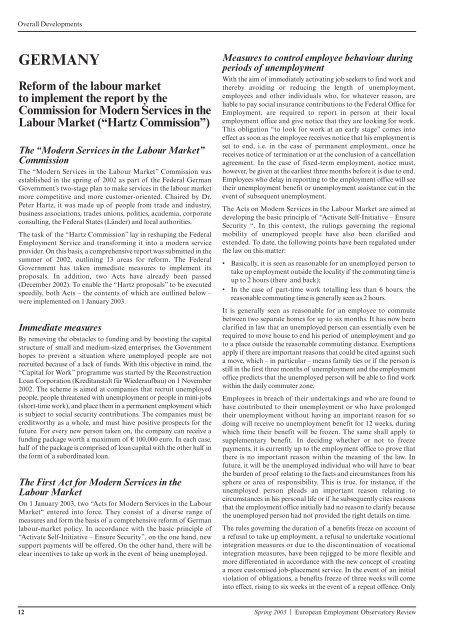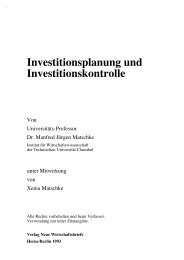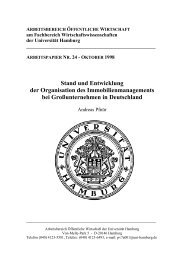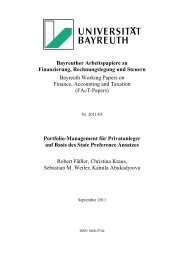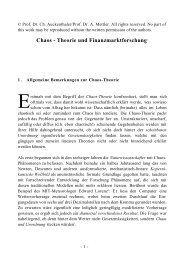FRANCE The
FRANCE The
FRANCE The
You also want an ePaper? Increase the reach of your titles
YUMPU automatically turns print PDFs into web optimized ePapers that Google loves.
Overall Developments<br />
GERMANY<br />
Reform of the labour market<br />
to implement the report by the<br />
Commission for Modern Services in the<br />
Labour Market (“Hartz Commission”)<br />
<strong>The</strong> “Modern Services in the Labour Market”<br />
Commission<br />
<strong>The</strong> “Modern Services in the Labour Market” Commission was<br />
established in the spring of 2002 as part of the Federal German<br />
Government’s two-stage plan to make services in the labour market<br />
more competitive and more customer-oriented. Chaired by Dr.<br />
Peter Hartz, it was made up of people from trade and industry,<br />
business associations, trades unions, politics, academia, corporate<br />
consulting, the Federal States (Länder) and local authorities.<br />
<strong>The</strong> task of the “Hartz Commission” lay in reshaping the Federal<br />
Employment Service and transforming it into a modern service<br />
provider. On this basis, a comprehensive report was submitted in the<br />
summer of 2002, outlining 13 areas for reform. <strong>The</strong> Federal<br />
Government has taken immediate measures to implement its<br />
proposals. In addition, two Acts have already been passed<br />
(December 2002). To enable the “Hartz proposals” to be executed<br />
speedily, both Acts – the contents of which are outlined below –<br />
were implemented on 1 January 2003.<br />
Immediate measures<br />
By removing the obstacles to funding and by boosting the capital<br />
structure of small and medium-sized enterprises, the Government<br />
hopes to prevent a situation where unemployed people are not<br />
recruited because of a lack of funds. With this objective in mind, the<br />
“Capital for Work” programme was started by the Reconstruction<br />
Loan Corporation (Kreditanstalt für Wiederaufbau) on 1 November<br />
2002. <strong>The</strong> scheme is aimed at companies that recruit unemployed<br />
people, people threatened with unemployment or people in mini-jobs<br />
(short-time work), and place them in a permanent employment which<br />
is subject to social security contributions. <strong>The</strong> companies must be<br />
creditworthy as a whole, and must have positive prospects for the<br />
future. For every new person taken on, the company can receive a<br />
funding package worth a maximum of € 100,000 euro. In each case,<br />
half of the package is comprised of loan capital with the other half in<br />
the form of a subordinated loan.<br />
<strong>The</strong> First Act for Modern Services in the<br />
Labour Market<br />
On 1 January 2003, two “Acts for Modern Services in the Labour<br />
Market“ entered into force. <strong>The</strong>y consist of a diverse range of<br />
measures and form the basis of a comprehensive reform of German<br />
labour-market policy. In accordance with the basic principle of<br />
“Activate Self-Initiative – Ensure Security”, on the one hand, new<br />
support payments will be offered. On the other hand, there will be<br />
clear incentives to take up work in the event of being unemployed.<br />
Measures to control employee behaviour during<br />
periods of unemployment<br />
With the aim of immediately activating job seekers to find work and<br />
thereby avoiding or reducing the length of unemployment,<br />
employees and other individuals who, for whatever reason, are<br />
liable to pay social insurance contributions to the Federal Office for<br />
Employment, are required to report in person at their local<br />
employment office and give notice that they are looking for work.<br />
This obligation “to look for work at an early stage” comes into<br />
effect as soon as the employee receives notice that his employment is<br />
set to end, i.e. in the case of permanent employment, once he<br />
receives notice of termination or at the conclusion of a cancellation<br />
agreement. In the case of fixed-term employment, notice must,<br />
however, be given at the earliest three months before it is due to end.<br />
Employees who delay in reporting to the employment office will see<br />
their unemployment benefit or unemployment assistance cut in the<br />
event of subsequent unemployment.<br />
<strong>The</strong> Acts on Modern Services in the Labour Market are aimed at<br />
developing the basic principle of “Activate Self-Initiative – Ensure<br />
Security “. In this context, the rulings governing the regional<br />
mobility of unemployed people have also been clarified and<br />
extended. To date, the following points have been regulated under<br />
the law on this matter:<br />
• Basically, it is seen as reasonable for an unemployed person to<br />
take up employment outside the locality if the commuting time is<br />
up to 2 hours (there and back);<br />
• In the case of part-time work totalling less than 6 hours, the<br />
reasonable commuting time is generally seen as 2 hours.<br />
It is generally seen as reasonable for an employee to commute<br />
between two separate homes for up to six months. It has now been<br />
clarified in law that an unemployed person can essentially even be<br />
required to move house to end his period of unemployment and go<br />
to a place outside the reasonable commuting distance. Exemptions<br />
apply if there are important reasons that could be cited against such<br />
a move, which – in particular – means family ties or if the person is<br />
still in the first three months of unemployment and the employment<br />
office predicts that the unemployed person will be able to find work<br />
within the daily commuter zone.<br />
Employees in breach of their undertakings and who are found to<br />
have contributed to their unemployment or who have prolonged<br />
their unemployment without having an important reason for so<br />
doing will receive no unemployment benefit for 12 weeks, during<br />
which time their benefit will be frozen. <strong>The</strong> same shall apply to<br />
supplementary benefit. In deciding whether or not to freeze<br />
payments, it is currently up to the employment office to prove that<br />
there is no important reason within the meaning of the law. In<br />
future, it will be the unemployed individual who will have to bear<br />
the burden of proof relating to the facts and circumstances from his<br />
sphere or area of responsibility. This is true, for instance, if the<br />
unemployed person pleads an important reason relating to<br />
circumstances in his personal life or if he subsequently cites reasons<br />
that the employment office initially had no reason to clarify because<br />
the unemployed person had not provided the right details on time.<br />
<strong>The</strong> rules governing the duration of a benefits freeze on account of<br />
a refusal to take up employment, a refusal to undertake vocational<br />
integration measures or due to the discontinuation of vocational<br />
integration measures, have been rejigged to be more flexible and<br />
more differentiated in accordance with the new concept of creating<br />
a more customised job-placement service. In the event of an initial<br />
violation of obligations, a benefits freeze of three weeks will come<br />
into effect, rising to six weeks in the event of a repeat offence. Only<br />
12 Spring 2003 | European Employment Observatory Review


